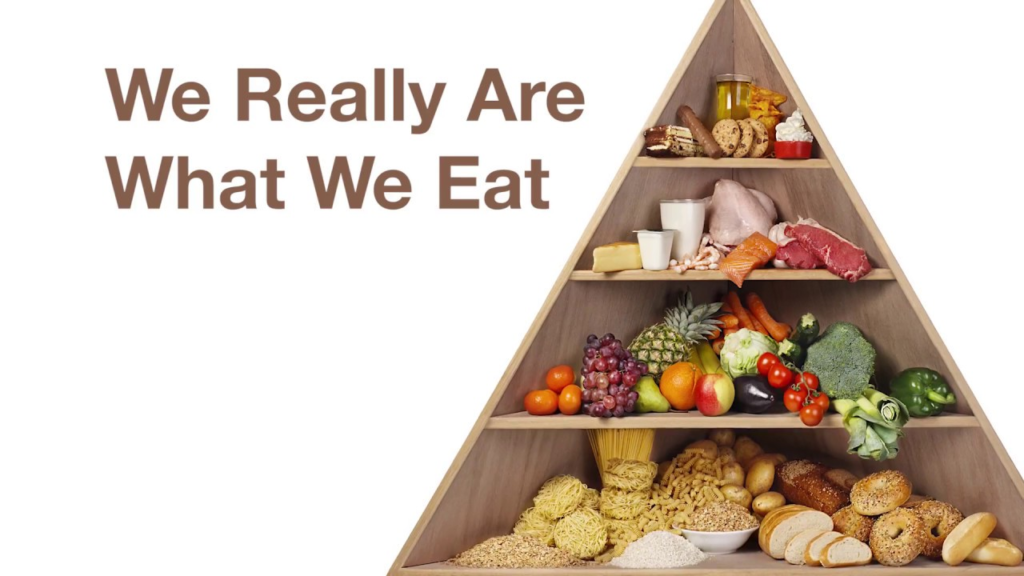Imagine sculpting a lean, muscular physique without ever touching a piece of meat.
In a world where protein shakes and steak dinners dominate the fitness industry, the idea of achieving significant body transformation on a vegetarian diet may seem far-fetched to some.
Yet, more and more individuals are defying this stereotype and proving that plant-based eating can be the cornerstone of an impressive physical metamorphosis.
Welcome to the realm of Vegetarian Body Transformation.
In this article, we’ll unravel the myths surrounding vegetarianism and muscle building while diving into science-backed strategies that can help you harness the power of plants for your fitness goals.
From understanding essential nutrients to crafting effective meal plans, our comprehensive guide will equip you with everything needed to embark on your own transformative journey.
Whether you’re just starting out or seeking new ways to optimize your existing regimen, prepare to be inspired by real-life success stories and expert insights that demonstrate how anyone can achieve peak performance on a vegetarian diet.
In recent years, there has been a growing interest in plant-based diets and their potential benefits for overall health and well-being.
Among the many advantages of adopting a vegetarian lifestyle, one of the most notable is its potential to facilitate significant body transformations.
Contrary to common misconceptions, individuals following a vegetarian diet can achieve remarkable changes in their physique, strength, and endurance levels.
By focusing on nutrient-dense foods such as fruits, vegetables, whole grains, and legumes, vegetarians can fuel their bodies with the essential nutrients needed to support muscle growth, fat loss, and overall fitness goals.
Through a combination of proper nutrition, regular exercise, and dedication, individuals can experience profound changes in their physical appearance and athletic performance.
This article delves into the science behind vegetarian body transformations, exploring the key principles that underlie successful dietary and fitness strategies for those looking to embark on a plant-based journey towards achieving their body transformation goals.
Whether you are a seasoned vegetarian looking to enhance your fitness regimen or a newcomer curious about the potential benefits of plant-based eating, this article will provide valuable insights and practical tips to help you achieve your desired body transformation.
Balanced plant-based diet for vitality
Incorporating a balanced plant-based diet into your daily routine can be a powerful tool for maintaining vitality and overall health.
By focusing on a diverse array of fruits, vegetables, whole grains, nuts, seeds, and legumes, individuals can ensure they are receiving essential nutrients and antioxidants that support optimal well-being.
Plant-based diets have been linked to numerous health benefits, including improved heart health, better weight management, and reduced risk of chronic diseases such as diabetes and certain types of cancer.
When planned thoughtfully to meet individual nutritional needs, a plant-based diet can provide ample energy and vitality for a vibrant and active lifestyle.
Muscle gain through vegetarian nutrition
For individuals seeking to increase muscle mass while adhering to a vegetarian diet, strategic planning and attention to key nutritional components are essential for achieving optimal results.
Protein, a fundamental component for muscle growth and repair, can be obtained through various plant-based sources such as legumes, tofu, tempeh, seitan, quinoa, and nuts.
Additionally, ensuring an adequate intake of essential amino acids, particularly leucine, is crucial for stimulating muscle protein synthesis.
Incorporating a variety of plant-based foods rich in iron, zinc, calcium, vitamin D, and omega-3 fatty acids can further support muscle function and recovery for those pursuing muscle gain within a vegetarian nutrition framework.
Weight loss with plant-based foods
Incorporating plant-based foods into a weight loss regimen can have numerous benefits beyond just shedding pounds.
By focusing on a diet rich in fruits, vegetables, whole grains, legumes, nuts, and seeds, individuals can not only manage their weight effectively but also improve overall health and well-being.
Plant-based foods are typically lower in calories and saturated fats than animal products, making them an ideal choice for those looking to reduce calorie intake while maintaining essential nutrients.
Additionally, the high fiber content of plant-based foods can promote feelings of fullness and satiety, potentially reducing overall calorie consumption and aiding in weight loss efforts.
Embracing a plant-based diet can also lead to improved digestion, increased energy levels, and a reduced risk of chronic diseases, making it a holistic approach to achieving and maintaining a healthy weight.
Energy boost from plant proteins
One of the key advantages of incorporating plant proteins into a vegetarian diet is the significant energy boost they can provide.
Plant proteins, derived from sources such as legumes, nuts, seeds, and grains, offer a sustainable and nutritious way to fuel the body.
Unlike some animal-based proteins that can be heavy and difficult to digest, plant proteins are often lighter on the stomach, leading to increased energy levels and improved overall vitality.
The complex carbohydrates and fiber found in plant-based proteins can provide a steady release of energy throughout the day, reducing feelings of fatigue and promoting optimal performance during physical activities and daily tasks.
By including a variety of plant proteins in your diet, you can experience enhanced energy levels, better focus, and improved stamina, supporting your overall well-being and vegetarian body transformation journey.
Essential nutrients for vegetarian health
When following a vegetarian diet, it is essential to pay close attention to certain nutrients that may be lacking due to the absence of animal products.
One critical nutrient for vegetarian health is vitamin B12, which is primarily found in animal products.
Vegetarians can obtain vitamin B12 from fortified foods such as plant-based milk, breakfast cereals, and nutritional yeast, or through supplements.
Additionally, iron is another vital nutrient that vegetarians should focus on, as plant-based sources of iron are not as easily absorbed by the body as heme iron found in animal products.
Good plant-based sources of iron include legumes, tofu, nuts, seeds, and dark leafy greens, which can be paired with vitamin C-rich foods to enhance iron absorption.
By being mindful of these essential nutrients and incorporating a varied and balanced vegetarian diet, individuals can optimize their health and well-being while following a plant-based lifestyle.
Flexibility and agility on veggies
Incorporating flexibility and agility into a vegetarian diet can significantly enhance its nutritional value and variety.
By embracing a diverse range of vegetables, fruits, legumes, whole grains, nuts, and seeds, individuals can ensure they receive a wide array of essential vitamins, minerals, and antioxidants.
Experimenting with different cooking methods, such as roasting, steaming, or stir-frying, can also add variety and flavor to vegetarian meals, making the dining experience more enjoyable and satisfying.
Furthermore, staying open to trying new vegetables and incorporating seasonal produce into meals can provide a fresh and vibrant palette of flavors and nutrients, promoting overall health and wellness on a plant-based diet.
Lean body maintenance with plants
When focusing on lean body maintenance with plants, it is essential to prioritize whole, nutrient-dense foods that support muscle retention and fat loss.
Incorporating a variety of plant-based protein sources, such as legumes, tofu, tempeh, and quinoa, can help individuals meet their protein needs for muscle repair and growth while maintaining a lean physique.
Additionally, emphasizing leafy greens and colorful vegetables provides essential vitamins, minerals, and antioxidants that support overall health and metabolic function.
Opting for whole grains like brown rice and oats can offer sustained energy levels and promote satiety, aiding in weight management and body composition goals.
Balancing macronutrients and focusing on whole, minimally processed plant foods can facilitate lean body maintenance and support optimal physical performance on a plant-based diet.
Plant-based diet for fitness
As individuals pursue fitness goals on a plant-based diet, understanding the significance of adequate nutrient intake becomes vital.
Plant-based sources like nuts, seeds, and plant oils rich in omega-3 fatty acids can contribute to improved heart health, reduced inflammation, and enhanced recovery post-exercise.
Furthermore, incorporating a wide array of fruits, vegetables, and whole grains not only ensures a diverse nutrient intake but also assists in maintaining an alkaline environment within the body, potentially enhancing workout performance and reducing muscle fatigue.
By focusing on nutrient-rich plant foods and carefully planning meals to meet individual macronutrient needs, individuals can effectively support their fitness endeavors while following a plant-based eating regimen.
In conclusion, embracing a vegetarian lifestyle can have transformative effects on one’s body and overall well-being.
The journey towards adopting a plant-based diet often involves mindfulness, discipline, and a dedication to making healthier choices.
The potential benefits, such as weight loss, increased energy levels, and improved digestive health, can be significant motivators for individuals looking to enhance their physical fitness and mental clarity.
By prioritizing nutrient-rich foods and integrating a variety of plant-based proteins into their meals, vegetarians can achieve their fitness goals while maintaining a sustainable and ethical approach to nutrition.
This holistic approach to health and wellness underscores the power of vegetarianism in nurturing the body, mind, and spirit.
FAQ
What are some key tips for vegetarians looking to build muscle and transform their bodies?
Some key tips for vegetarians looking to build muscle and transform their bodies include ensuring adequate protein intake through plant-based sources like tofu, legumes, and tempeh, focusing on nutrient-dense whole foods to support recovery and growth, incorporating strength training exercises to stimulate muscle growth, staying hydrated, and getting enough rest for optimal recovery and muscle repair.
Additionally, considering supplementation of essential nutrients like vitamin B12, iron, and omega-3 fatty acids can help support overall health and performance.
Consistency, patience, and listening to your body’s needs are also crucial in achieving desired results.
How can vegetarians ensure they are getting enough protein in their diet to support their body transformation goals?
Vegetarians can ensure they are getting enough protein by incorporating plant-based sources such as legumes, tofu, tempeh, quinoa, nuts, seeds, and plant-based protein powders into their diet.
Consuming a variety of these protein-rich foods throughout the day can help meet their protein needs and support body transformation goals.
Additionally, tracking protein intake and possibly consulting a dietitian can help ensure they are meeting their protein requirements.
Are there any specific supplements or plant-based protein sources that are particularly beneficial for vegetarian body transformation?
Yes, there are several plant-based protein sources and supplements that can be beneficial for vegetarian body transformation.
Plant-based proteins such as quinoa, lentils, chickpeas, tofu, and tempeh are rich in essential amino acids and can aid in muscle building and recovery.
Additionally, supplements like vegan protein powders, BCAAs, creatine, and omega-3 fatty acids can support muscle growth, energy levels, and overall health during a vegetarian body transformation journey.
It is important to consult with a healthcare provider or nutritionist to determine the best options for individual needs and goals.
How can a vegetarian create a balanced meal plan to support their body transformation goals?
A vegetarian looking to create a balanced meal plan for body transformation should focus on incorporating a variety of plant-based proteins like beans, lentils, tofu, and quinoa, along with ample fruits, vegetables, whole grains, and healthy fats.
Monitoring portion sizes and ensuring adequate protein intake is crucial.
Including sources of iron, vitamins B12 and D, calcium, and omega-3s is important for overall health and energy levels.
Additionally, staying hydrated and incorporating regular exercise are key components to support body transformation goals as a vegetarian.
What are some common mistakes that vegetarians make when trying to transform their bodies, and how can they avoid them?
Some common mistakes vegetarians make when trying to transform their bodies include not getting enough protein, relying too heavily on processed vegetarian foods, and neglecting essential nutrients like iron and vitamin B12.
To avoid these mistakes, vegetarians can incorporate a variety of plant-based protein sources such as legumes, nuts, and seeds, focus on whole foods rather than processed substitutes, and consider taking supplements or consuming fortified foods to ensure they are meeting their nutritional needs.
Additionally, consulting a dietitian or nutritionist can help vegetarians create a balanced and sustainable meal plan for body transformation.

